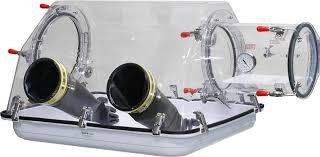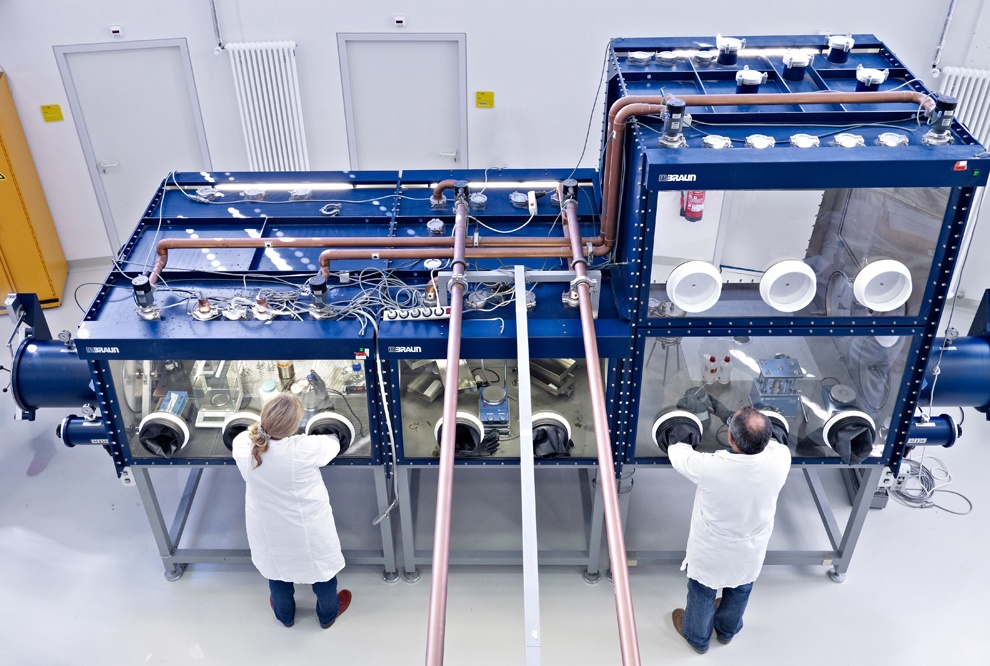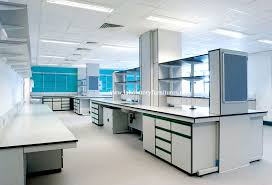The Revolutionary Role of Evaporators in Laboratory Processes

The Unseen Heroes of Laboratory Efficiency: A Deep Dive into Evaporators

In the intricate world of scientific research, laboratories stand as the epicenters of innovation, where groundbreaking discoveries are made and the boundaries of human knowledge are pushed further. Within these hallowed halls, a myriad of sophisticated instruments and equipment play crucial roles, each contributing to the seamless execution of experiments and the generation of reliable data. Among these indispensable tools, evaporators often remain hidden in plain sight, their significance often underestimated despite their profound impact on the efficiency and accuracy of laboratory processes.
Evaporators, in their simplest form, are devices designed to remove solvents from solutions, leaving behind the desired solutes. This seemingly straightforward process, however, holds immense implications for a wide range of scientific disciplines, from chemistry and biology to materials science and pharmaceuticals. The ability to efficiently and precisely evaporate solvents unlocks a plethora of possibilities, enabling researchers to isolate, purify, and concentrate samples, ultimately paving the way for groundbreaking discoveries and advancements.
The importance of evaporators in laboratory settings cannot be overstated. They serve as the backbone of numerous critical procedures, including sample preparation, purification, and concentration. In analytical chemistry, evaporators are indispensable for preparing samples for analysis, ensuring that the desired analytes are present in sufficient concentrations for accurate detection and quantification. In organic chemistry, evaporators are used to remove solvents from reaction mixtures, allowing for the isolation and purification of valuable products. In the field of pharmaceuticals, evaporators play a crucial role in the production of active pharmaceutical ingredients (APIs), ensuring that the final product is free from impurities and meets stringent quality standards.
The demand for evaporators in laboratories continues to grow, driven by the increasing complexity of scientific research and the need for more efficient and precise analytical techniques. As researchers delve deeper into the intricacies of biological systems, the need for sensitive and accurate analytical methods becomes paramount. Evaporators, with their ability to concentrate and purify samples, play a vital role in enabling these advancements. Moreover, the growing emphasis on sustainability in the scientific community has led to a renewed focus on reducing solvent waste, a goal that evaporators can effectively address by minimizing solvent usage and maximizing recovery.
Despite their widespread use and undeniable importance, evaporators often remain a relatively underappreciated aspect of laboratory operations. Many researchers and technicians may be familiar with the basic principles of evaporation but lack a comprehensive understanding of the diverse range of evaporator technologies available and the nuances of selecting the optimal evaporator for a specific application. This lack of awareness can lead to inefficient use of resources, compromised experimental results, and even safety hazards.
This article aims to bridge this knowledge gap by providing a comprehensive overview of evaporators, exploring their diverse applications, and delving into the key factors to consider when selecting the right evaporator for a particular laboratory need. By shedding light on the intricacies of evaporator technology, this article seeks to empower researchers, technicians, and procurement managers with the knowledge and insights necessary to optimize their laboratory workflows, enhance experimental accuracy, and ultimately contribute to the advancement of scientific knowledge.
The journey into the world of evaporators begins with a fundamental understanding of the principles behind this essential laboratory process. Evaporation, at its core, is a physical phenomenon that involves the transformation of a liquid into a vapor. This transformation occurs when the molecules of a liquid gain sufficient energy to overcome the intermolecular forces holding them together, allowing them to escape into the surrounding atmosphere as gas molecules.
The rate of evaporation is influenced by several factors, including the temperature, pressure, and surface area of the liquid. Higher temperatures provide molecules with more energy, increasing the rate of evaporation. Lower pressures, on the other hand, reduce the resistance to vaporization, leading to faster evaporation. A larger surface area exposes more liquid molecules to the surrounding atmosphere, facilitating faster evaporation.
In laboratory settings, evaporation is typically achieved through the use of specialized equipment known as evaporators. These devices are designed to control the evaporation process, ensuring that the desired solvent is removed efficiently and effectively. Evaporators come in a wide variety of designs, each tailored to specific applications and requirements.
The choice of evaporator depends on several factors, including the type of solvent being evaporated, the volume of the sample, the desired level of purity, and the time constraints of the experiment. For example, a rotary evaporator is well-suited for evaporating large volumes of volatile solvents, while a centrifugal evaporator is ideal for concentrating small volumes of samples. Some evaporators are designed for specific applications, such as the evaporation of organic solvents or the concentration of biological samples.
The evolution of evaporator technology has been driven by the constant pursuit of efficiency, precision, and safety in laboratory processes. Modern evaporators incorporate advanced features such as automated temperature control, vacuum systems, and integrated sensors, enabling researchers to perform evaporation with unprecedented accuracy and control. These advancements have significantly reduced the risk of sample degradation, contamination, and operator error, further enhancing the reliability and reproducibility of experimental results.
The impact of evaporators on laboratory processes extends beyond the realm of sample preparation and purification. Evaporators are also essential for a wide range of other applications, including:
- Solvent recovery: Evaporators can be used to recover valuable solvents from waste streams, reducing environmental impact and minimizing costs.
- Crystallization: Evaporators can be used to create supersaturated solutions, promoting the formation of crystals for various applications, including pharmaceuticals and materials science.
- Drying: Evaporators can be used to remove moisture from samples, ensuring that they are dry and ready for analysis or storage.
- Concentration: Evaporators can be used to concentrate samples, increasing the concentration of analytes for improved sensitivity and detection.
- Extraction: Evaporators can be used to extract desired compounds from complex mixtures, facilitating the isolation and purification of valuable substances.
The versatility of evaporators makes them indispensable tools in a wide range of scientific disciplines. From the basic research laboratory to the industrial production facility, evaporators play a critical role in driving innovation and advancing scientific knowledge.
As we delve deeper into the world of evaporators, it becomes evident that these seemingly simple devices are far more complex and sophisticated than they may appear. Understanding the nuances of evaporator technology, the diverse range of applications, and the key factors to consider when selecting the right evaporator is crucial for optimizing laboratory workflows, enhancing experimental accuracy, and ultimately contributing to the advancement of scientific knowledge.
The following sections will explore the various types of evaporators available, their unique features and applications, and the critical factors to consider when selecting the optimal evaporator for a specific laboratory need. By gaining a deeper understanding of these aspects, researchers, technicians, and procurement managers can make informed decisions that enhance laboratory efficiency, improve experimental outcomes, and ultimately contribute to the advancement of scientific discovery.
The Crucial Role of Evaporators in Modern Laboratories
In the realm of scientific research and development, laboratories serve as the bedrock of innovation, where groundbreaking discoveries are made, and technological advancements are propelled forward. At the heart of these laboratories lies a diverse array of equipment and consumables, each playing a vital role in facilitating the intricate processes that drive scientific progress. Among these essential tools, evaporators stand out as indispensable instruments, enabling researchers to efficiently remove solvents from various samples, thereby paving the way for a multitude of critical applications.
Evaporators, in their essence, are devices designed to facilitate the removal of solvents from solutions, leaving behind the desired solutes. This process, known as evaporation, is a fundamental technique employed across a wide spectrum of scientific disciplines, including chemistry, biology, pharmaceuticals, and materials science. The ability to effectively remove solvents is paramount in numerous laboratory procedures, as it allows researchers to isolate, purify, and concentrate samples, ultimately enabling further analysis and experimentation.
The significance of evaporators in laboratory processes cannot be overstated. They serve as indispensable tools for a wide range of applications, including:
Solvent Removal and Sample Concentration
One of the most fundamental applications of evaporators lies in the removal of solvents from solutions, a process that is essential for various laboratory procedures. By carefully controlling the temperature and pressure within the evaporation chamber, researchers can selectively remove solvents, leaving behind the desired solutes in a concentrated form. This technique is widely employed in analytical chemistry, where it is crucial for preparing samples for analysis using techniques such as chromatography, mass spectrometry, and nuclear magnetic resonance (NMR) spectroscopy.
For instance, in the analysis of organic compounds, evaporators are used to remove volatile solvents such as hexane, dichloromethane, and ethyl acetate, leaving behind the target compounds in a concentrated form. This allows for more accurate and sensitive analysis, as the concentration of the analyte is increased, leading to stronger signals and improved detection limits.
Sample Preparation for Analysis
Prior to analysis using various analytical techniques, samples often require extensive preparation to ensure optimal results. Evaporators play a crucial role in this sample preparation process, enabling researchers to remove interfering substances, adjust sample volumes, and concentrate analytes. This meticulous preparation is essential for obtaining accurate and reliable analytical data.
For example, in the analysis of biological samples, such as blood or urine, evaporators are used to remove water and other volatile components, leaving behind the target analytes in a concentrated form. This allows for more sensitive detection of biomarkers and other analytes of interest, providing valuable insights into the physiological state of the organism.
Purification and Isolation of Compounds
In the field of organic chemistry, evaporators are indispensable tools for the purification and isolation of compounds. By carefully controlling the evaporation conditions, researchers can selectively remove impurities from a mixture, leaving behind the desired compound in a pure form. This process is crucial for obtaining high-quality compounds for further research and development.
For instance, in the synthesis of new drugs or materials, evaporators are used to remove excess reagents, byproducts, and solvents, leaving behind the desired product in a pure form. This purification step is essential for ensuring the efficacy and safety of the final product.
Crystallization and Precipitation
Crystallization and precipitation are fundamental techniques used in chemistry and materials science for the synthesis and purification of compounds. Evaporators play a crucial role in these processes by facilitating the removal of solvents, leading to the formation of crystals or precipitates. The controlled evaporation of solvents allows for the precise control of crystallization conditions, resulting in the formation of high-quality crystals with desired properties.
For example, in the synthesis of pharmaceutical compounds, evaporators are used to remove solvents from solutions, leading to the formation of crystals of the desired drug. The size, shape, and purity of these crystals are critical for ensuring the efficacy and bioavailability of the drug.
Drying of Samples
In many laboratory procedures, it is essential to remove moisture from samples, either to prevent degradation or to facilitate further analysis. Evaporators are commonly used for drying samples, as they can effectively remove water and other volatile solvents, leaving behind the desired material in a dry form.
For example, in the analysis of biological samples, such as tissues or cells, evaporators are used to remove water, preventing degradation and preserving the integrity of the sample. This allows for more accurate and reliable analysis of the biological material.
Solvent Recovery
In addition to their primary role in sample preparation and analysis, evaporators can also be used for solvent recovery. By carefully controlling the evaporation conditions, researchers can recover valuable solvents that would otherwise be lost. This not only reduces waste but also saves on the cost of purchasing new solvents.
For example, in the synthesis of organic compounds, evaporators can be used to recover solvents such as hexane, dichloromethane, and ethyl acetate, which can then be reused in subsequent reactions. This practice promotes sustainability and reduces the environmental impact of laboratory operations.
Types of Evaporators
Evaporators come in a wide variety of designs, each tailored to specific applications and requirements. Some of the most common types of evaporators used in laboratories include:
Rotary Evaporators
Rotary evaporators are versatile and widely used instruments for solvent removal and sample concentration. They consist of a rotating flask that is immersed in a heated water bath, allowing for efficient evaporation of solvents under reduced pressure. The rotating flask ensures uniform heating and efficient solvent removal, while the reduced pressure lowers the boiling point of the solvent, facilitating faster evaporation.
Rotary evaporators are particularly well-suited for applications involving large volumes of solvents, such as the concentration of organic extracts or the purification of reaction mixtures. They are also commonly used in the pharmaceutical industry for the production of active pharmaceutical ingredients (APIs).
Centrifugal Evaporators
Centrifugal evaporators are designed for the rapid evaporation of small volumes of samples. They utilize centrifugal force to distribute the sample evenly across the surface of a rotating tube, maximizing the surface area exposed to the evaporating gas. This design allows for efficient evaporation of solvents, even at low temperatures, making them ideal for the concentration of heat-sensitive samples.
Centrifugal evaporators are commonly used in analytical chemistry for the preparation of samples for analysis using techniques such as gas chromatography (GC) and high-performance liquid chromatography (HPLC). They are also used in the pharmaceutical industry for the concentration of drug solutions and the preparation of formulations.
Parallel Evaporators
Parallel evaporators are designed for the simultaneous evaporation of multiple samples. They consist of a series of individual evaporation chambers, each equipped with its own heating and pressure control system. This allows for the efficient processing of large numbers of samples, saving time and resources.
Parallel evaporators are commonly used in high-throughput screening applications, where large numbers of samples need to be processed quickly. They are also used in the pharmaceutical industry for the parallel synthesis and purification of drug candidates.
Other Types of Evaporators
In addition to the aforementioned types, there are other specialized evaporators designed for specific applications. These include:
- Freeze-drying evaporators: These evaporators are used for the removal of solvents from frozen samples, a process known as freeze-drying or lyophilization. Freeze-drying is commonly used for the preservation of biological samples, such as proteins, enzymes, and vaccines.
- Nitrogen evaporators: These evaporators use nitrogen gas to remove solvents from samples. Nitrogen evaporators are often used for the concentration of heat-sensitive samples, as the nitrogen gas can be cooled to prevent sample degradation.
- Vacuum evaporators: These evaporators operate under reduced pressure, which lowers the boiling point of the solvent, facilitating faster evaporation. Vacuum evaporators are commonly used for the removal of volatile solvents from samples.
Factors to Consider When Choosing an Evaporator
When choosing an evaporator for a particular application, it is important to consider several factors, including:
- Sample volume: The volume of the sample to be evaporated will determine the size and capacity of the evaporator required.
- Solvent type: The type of solvent to be removed will influence the evaporation conditions, such as temperature and pressure.
- Sample sensitivity: Some samples are sensitive to heat or pressure, requiring the use of specialized evaporators designed for gentle evaporation.
- Throughput requirements: The number of samples to be processed will determine the throughput capacity of the evaporator needed.
- Budget: Evaporators come in a wide range of prices, depending on their features and capabilities.
Safety Considerations
Evaporators are powerful instruments that can pose safety hazards if not used properly. It is essential to follow all safety guidelines and procedures when operating an evaporator. Some important safety considerations include:
- Proper ventilation: Evaporators should be operated in a well-ventilated area to prevent the accumulation of flammable or toxic vapors.
- Use of personal protective equipment (PPE): Appropriate PPE, such as gloves, goggles, and lab coats, should be worn when handling solvents and operating evaporators.
- Proper disposal of waste: Solvents and other waste materials should be disposed of properly according to local regulations.
- Regular maintenance: Evaporators should be regularly maintained to ensure their safe and efficient operation.
Conclusion
Evaporators are indispensable tools in modern laboratories, enabling researchers to efficiently remove solvents from various samples, thereby facilitating a wide range of critical applications. From sample preparation and analysis to purification and isolation, evaporators play a vital role in driving scientific progress. By understanding the different types of evaporators available and the factors to consider when choosing one, researchers can select the most appropriate instrument for their specific needs, ensuring accurate and reliable results while maintaining safety in the laboratory environment.
The Power of Precision: Optimizing Your Laboratory Processes with Evaporators
In the realm of scientific exploration, precision is paramount. Every experiment, every analysis, every discovery hinges on the meticulous control of variables. Among the essential tools that empower researchers to achieve this level of accuracy are evaporators. These versatile instruments play a pivotal role in a wide array of laboratory processes, enabling scientists to manipulate and analyze samples with unparalleled precision.
The journey of a sample through a laboratory often involves the removal of solvents, a critical step in purification, concentration, and analysis. Evaporators, with their ability to gently and efficiently remove solvents, are indispensable in this process. They provide a controlled environment where the delicate balance of the sample is maintained, ensuring that the integrity of the data remains uncompromised.
The choice of evaporator, however, is not a trivial matter. The diverse range of applications in modern laboratories necessitates a variety of evaporator designs, each tailored to specific needs. From rotary evaporators, ideal for large-scale solvent removal, to centrifugal evaporators, designed for high-throughput processing, the selection of the right evaporator is crucial for optimizing laboratory workflows.
Beyond their core function of solvent removal, evaporators have become integral to a multitude of laboratory techniques. They are employed in the synthesis and purification of organic compounds, the preparation of samples for chromatography and mass spectrometry, and the concentration of biological samples for downstream analysis. Their versatility extends to diverse fields, from pharmaceutical research and biotechnology to environmental monitoring and food science.
The impact of evaporators on laboratory processes is profound. They enable researchers to achieve higher levels of precision, efficiency, and reproducibility, ultimately contributing to the advancement of scientific knowledge. By carefully selecting the appropriate evaporator for their specific needs, laboratories can streamline their workflows, enhance data quality, and accelerate the pace of discovery.
As the scientific landscape continues to evolve, the demand for sophisticated and reliable evaporators will only increase. IT Tech, with its unwavering commitment to providing cutting-edge laboratory solutions, stands ready to meet this demand. Our comprehensive portfolio of evaporators, encompassing a wide range of models and configurations, empowers laboratories to achieve their research goals with confidence.
From rotary evaporators to centrifugal evaporators, from benchtop models to industrial-scale systems, IT Tech offers a solution for every laboratory need. Our evaporators are engineered with precision and durability, ensuring optimal performance and long-lasting reliability. We understand the critical role that evaporators play in scientific research, and we are dedicated to providing our customers with the highest quality products and exceptional support.
To learn more about IT Tech's comprehensive range of evaporators and how they can revolutionize your laboratory processes, we invite you to submit an enquiry today. Our team of experts is ready to assist you in finding the perfect evaporator solution for your specific needs. Together, let's unlock the full potential of your laboratory and drive scientific progress forward.
IT Tech: Your evaporator source.😎😎😎
Products You may Like
Check out other IT- Tech product that suit your taste
Subscribe to our newsletter
Stay updated with IT-Tech Insights
Related posts
Check out other IT- Tech Scientific Resources

Captains of the Glove Box Universe: Movers and Shakers in the Industry
The Glove Box industry is a dynamic landscape driven by innovation and a commitment to laboratory safety. This article delves into the world of Glove Box manufacturers, examining their unique offerings, technological advancements, and impact on research and development. From established leaders to emerging players, we explore the companies driving the evolution of Glove Box technology, ensuring a secure and controlled environment for critical scientific work. Join us as we uncover the movers and shakers who are shaping the future of Glove Box technology.

Superhero Sidekicks: The Many Marvels of Glove Boxes
Glove Boxes are enclosed workstations designed to create a controlled environment for handling sensitive materials. They are widely used in laboratories for applications such as handling hazardous substances, conducting sterile procedures, and working with materials that require protection from atmospheric contaminants. Glove Boxes provide a barrier between the user and the work area, ensuring the safety of both the operator and the experiment. They are equipped with gloves that allow manipulation of materials within the box while maintaining a controlled atmosphere. Glove Boxes are essential for a wide range of scientific disciplines, including chemistry, biology, pharmaceuticals, and materials science. They play a crucial role in research, development, and quality control, enabling scientists to conduct experiments with precision and accuracy.

Who's Who in the World of Lab Furniture: Industry Giants and Their Premier Products
Navigating the world of laboratory furniture can be overwhelming. This article provides a comprehensive overview of industry leaders and their standout products. We explore key features, benefits, and considerations to help you make informed decisions. From ergonomic workstations to specialized storage solutions, we cover the essential aspects of lab furniture, empowering you to create a functional and efficient workspace.








































































